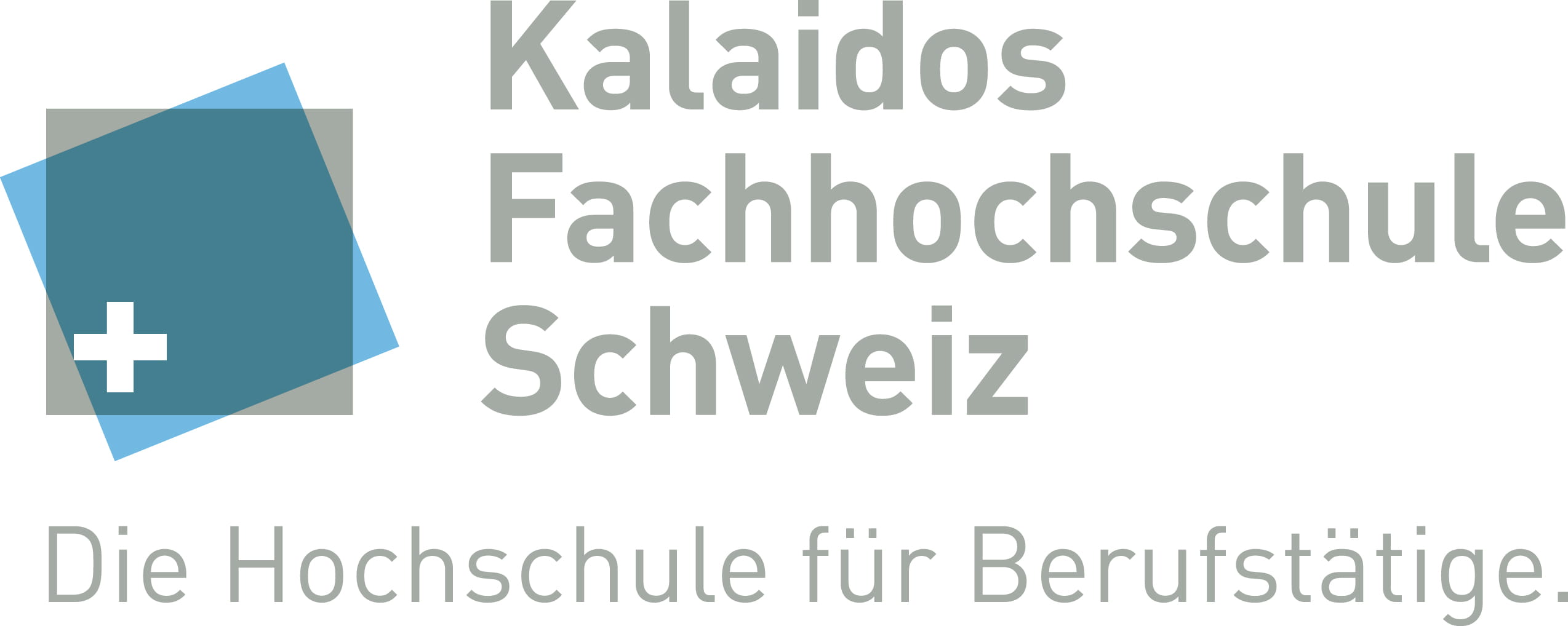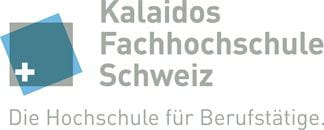Die Pflicht- und Wahlpflichtmodule bilden die Basis des MAS FH in Cardiovascular Perfusion und liefern Ihnen die wesentlichen Kenntnisse und Kompetenzen. Für weitere Informationen klicken Sie bitte auf die einzelnen Module.
Für die Anmeldung zum gesamten Studiengang benützen Sie bitte den Anmelde-Button auf der Hauptseite und nicht die Anmeldung über die einzelnen Module
Zulassungsmodul MAS FH in Cardiovascular Perfusion
Um zu den detaillierten Modulbeschreibungen zu gelangen, klicken Sie bitte auf den Abwärtspfeil auf der rechten Seite.
Dieses Modul legt den Fokus auf wissenschaftliches Denken und Arbeiten, wobei Aspekte wie Objektivität, Sachlichkeit, zuverlässige Quellen, Kenntnisse des aktuellen Forschungsstands sowie korrektes Formulieren und Zitieren eine wichtige Rolle spielen. Es vermittelt grundlegende Kompetenzen im Umgang mit Forschungsliteratur und zeigt auf, wie diese im Verlauf des Studiums effektiv genutzt werden können.
In this module you will learn the intricacies of scientific thinking and working. Key aspects such as objectivity, use of reliable sources, gaining a comprehensive overview of the state of research, and mastering correct formulation and citation are central. The module will provide you with basic skills and guidance on how to use research literature correctly and successfully throughout your study.
Pflichtmodule im MAS FH in Cardiovascular Perfusion
Patient support with a heart-lung or dialysis machine not only affects the circulatory system, but the entire human organism. This module will cover important structures and diseases of the human organ systems in depth and point out the diagnostic and therapeutic possibilities. Topics of disinfection and sterilisation round off the module.
Perfusionists are responsible for the extracorporeal circulatory support prior to, during, and following cardiac surgery as well as support activities involving dialysis or therapy for cardiac arrhythmia. This requires a thorough and in-depth knowledge of the circulatory system. Changes in the cardiac circulation have immediate effects upon other physiological systems of the body, which requires comprehensive knowledge of these systems in order to quickly identify correlations and initiate adequate control measures. The perfusionist role is to understand the patient anatomy and physiology, to provide blood perfusion and to manage the metabolic demand.
Learning Outcomes/Competencies
You will be able to
- utilize knowledge- and self-management for study and profession in an effective manner.
- utilize medical knowledge in anatomy, physiology, pathophysiology, and treatment principles, such as laboratory medicine, hygiene, desinfection and sterilisation to enhance their professional activities.
- create a factual and clear presentation.
Module Content
- Introduction in MAS CP - Study Management
- Pulmonary system
- Cardiovascular system
- Hematology
- Blood disorders
- Endocrine system
- Nervous system
- Immune system
- Urinary system
- Gastro-intestinal system
- Hygiene for perfusionists
- Scientific working and writing
Teaching and Learning Methods
Lectures, Learning on the model, Discussions, Case Studies, Guided Self-Study, Training, etc.
Proof of Performance
Written examination
Requirements
- Ability to read and understand English expert literature and to follow classes taught in English
- Knowledge of Scientific Work
- Prospect of an internship in the area Cardiovascular Perfusion
Module code
CP-001
Module Type/Module Order
Mandatory Module in the course MAS Cardiovascular Perfusion The module order is fix.
English
The cardiovascular perfusionist is responsible for the patient’s life by controlling the heart-lung machine properly during cardiac surgery. This module will cover fundamental basics in physics, chemistry, biochemistry, pharmacology and medical technology. Topics of learning and knowledge management as well as job description round off the module.
History has shown that the principle of the heart-lung machine (HLM) today has changed little since its inception. However, new therapies and interventions are continually being developed by today’s cardiologists and cardiac surgeons due to highly specialized medical devices and technologies. Accordingly, the perfusionist is confronted with extended requirements to be capable to manage the HLM: essential is a comprehensive insight in the complex relationships between patient and the HLM. The necessary fundamental scientific and technological knowledge will be compiled in this and the following modules. Therefore a fundamental technical and scientific knowledge is mandatory to understand the complexity of cardiovascular perfusion in order to allow correct decisions when needed.
Learning Outcomes/Competencies
You will be able to
- utilize knowledge and self-management for study and profession in an effective manner.
- select the appropriate materials to be used.
- demonstrate the relationships between basics in electronic measurement and the values produced by monitoring equipment in perfusion.
- describe the basic principle of different extracorporeal systems.
- describe fundamental basics in physics, chemistry, and biochemistry and medical technology to ensure the correct understanding and management of medico-technical processes.
- administer pharmaceuticals, particularly pertaining to patients with cardiovascular disease.
- describe the historical development of perfusion science.
Module Content
- Job description
- Learning and knowledge management
- Biocompatibility
- Electronics – Electronic measurement
- Chemistry/Biochemistry
- Perfusion Basics
- Physics: Thermodynamics
- Extracorporeal systems
- Pharmacology
Teaching and Learning Methods
Lectures, Learning on the model, Discussions, Case Studies, Guided Self-Study, Training, etc.
Proof of Performance
Written examination
Requirements
- Ability to read and understand English expert literature and to follow classes taught in English
- Knowledge of Scientific Work
- Prospect of an internship in the area Cardiovascular Perfusion
Module code
CP-002
Module Type/Module Order
Mandatory Module in the course MAS Cardiovascular Perfusion.
The module order is fix.
150 hours, 5 ECTS points 40 hours Classroom Lessons and 110 hours Guided Self-Study
English
The cardiovascular perfusionist is responsible for the patient’s life by controlling the heart-lung machine properly during cardiac surgery. This module will cover fundamental basics in physics, chemistry, biochemistry, pharmacology and medical technology. Topics of learning and knowledge management as well as job description round off the module.
History has shown that the principle of the heart-lung machine (HLM) today has changed little since its inception. However, new therapies and interventions are continually being developed by today’s cardiologists and cardiac surgeons due to highly specialized medical devices and technologies. Accordingly, the perfusionist is confronted with extended requirements to be capable to manage the HLM: essential is a comprehensive insight in the complex relationships between patient and the HLM. The necessary fundamental scientific and technological knowledge will be compiled in this and the following modules. Therefore a fundamental technical and scientific knowledge is mandatory to understand the complexity of cardiovascular perfusion in order to allow correct decisions when needed.
Learning Outcomes/Competencies
You will be able to
- utilize knowledge and self-management for study and profession in an effective manner.
- select the appropriate materials to be used.
- demonstrate the relationships between basics in electronic measurement and the values produced by monitoring equipment in perfusion.
- describe the basic principle of different extracorporeal systems.
- describe fundamental basics in physics, chemistry, and biochemistry and medical technology to ensure the correct understanding and management of medico-technical processes.
- administer pharmaceuticals, particularly pertaining to patients with cardiovascular disease.
- describe the historical development of perfusion science.
Module Content
- Job description
- Learning and knowledge management
- Biocompatibility
- Electronics – Electronic measurement
- Chemistry/Biochemistry
- Perfusion Basics
- Physics: Thermodynamics
- Extracorporeal systems
- Pharmacology
Teaching and Learning Methods
Lectures, Learning on the model, Discussions, Case Studies, Guided Self-Study, Training, etc.
Proof of Performance
Written examination
Requirements
- Ability to read and understand English expert literature and to follow classes taught in English
- Knowledge of Scientific Work
- Prospect of an internship in the area Cardiovascular Perfusion
Module code
CP-003
Module Type/Module Order
Mandatory Module in the course MAS Cardiovascular Perfusion.
The module order is fix.
150 hours, 5 ECTS points 40 hours Classroom Lessons and 110 hours Guided Self-Study
English
Cardiopulmonary bypass (CPB) is used to maintain systemic circulation during cardiac surgery and for support for cardiac and respiratory failure. This module will cover the guidance procedures of the components involved with extracorporeal circulation and the technical responsibilities relating to arrhythmia therapies. Topics of differentiate between the extracorporeal techniques utilised for children, adults and for different operations round off the module.
The performance of cardiopulmonary bypass is the key responsibility of the perfusionist. The preparation and implementation of CPB support is accomplished through close coordination between the perfusionist and the involved cardiac surgeons. Nowadays, the routine use of circulatory support systems is applied to a growing spectrum of treatment indications and therefore the perfusionist requires a broad fundamental knowledge of the functional principles of these complex technical systems. The scope of tasks of a perfusionist include the participation in the implantation of these systems in neighbouring hospitals to enable the transport of patients by the involved rescue services to the proper care units.
You will be able to
- differentiate between the extracorporeal techniques utilised for children and adults and for different operations.
- determine and coordinate the guidance procedures of the components involved with extracorporeal circulation.
- perform technical responsibilities relating to arrhythmia therapies.
- describe the components, systems, and controls used in extracorporeal circulation.
- differentiate and apply the various techniques used in cardiac assist and extracorporeal life support.
Module Content
- Blood Management
- Vascular Surgery
- Cardiac Surgery (congenital)
- Cardiac Arrhythmia
- Cardiopulmonary Bypass (CBP)
- Cannulation Techniques, Reservoir, Vacuum
- Components: Oxygenators, e.g.
- Pathophysiology of CPB
- Parameters CPB
- Assist Devices
Teaching and Learning Methods
Lectures, Learning on the model, Discussions, Case Studies, Guided Self-Study, Training, etc.
Proof of Performance
Case study
Requirements
- Ability to read and understand English expert literature and to follow classes taught in English
- Knowledge of Scientific Work
- Prospect of an internship in the area Cardiovascular Perfusion
Module code
CP-004
Module Type/Module Order
Mandatory Module in the course MAS Cardiovascular Perfusion.
The module order is fix.
150 hours, 5 ECTS points 40 hours Classroom Lessons and 110 hours Guided Self-Study
English
An extensive equipment and monitoring technology is needed for cardiopulmonary bypass. This module will cover the perfusion requirements of the various operations for paediatric and adult patients, as well as the perfusion procedures required for emergency medicine. Topics of development and improvement of soft- and hardware with the medical industry round off the module.
A surgical intervention on the heart is always a challenge, regardless of the best experience, competence and routine of all involved. There is ever-present surgical, anaesthetic, and technical risk involved. Complications can mean serious consequences or death for the patient. Yet most perfusion errors can be avoided if discovered and corrected at an early stage. Acquired expertise and the necessary attention support the detection of potential problem situations. The operation of the involved equipment is complex and requires the full attention of the perfusionist.
You will be able to
- assume responsibility for independent and assisted tasks in perfusion diagnostics, therapies, and techniques for adult and paediatric patients.
- operate the heart-lung machine and extracorporeal assist systems.
- control the patient temperature with the hypothermia machine.
- differentiate between the perfusion requirements of the various operations for paediatric and adult patients, as well as the perfusion procedures required for emergency medicine.
- differentiate between the conventional ECC setup and special ECC systems.
- collaborate in the development and improvement of soft- and hardware with the medical industry.
Module Content
- Cardiology für adults and pediatric cardiology
- PVC/Plasticizer
- Normo-hypothermia machine
- Hygiene and sterility
- Perfusion aortic surgery and surroundings vessels
- MECC
- Optimized Perfusion
- NIRS
- CBP-System and Set
- Centrifugal Pumps
- Perfusion for Chemotherapy
Teaching and Learning Methods
Lectures, Learning on the model, Discussions, Case Studies, Guided Self-Study, Training, etc.
Proof of Performance
CPB-Circuit assembly
Requirements
- Ability to read and understand English expert literature and to follow classes taught in English
- Knowledge of Scientific Work
- Prospect of an internship in the area Cardiovascular Perfusion
Module code
CP-005
Module Type/Module Order
Mandatory Module in the course MAS Cardiovascular Perfusion.
The module order is fix.
150 hours, 5 ECTS points 40 hours Classroom Lessons and 110 hours Guided Self-Study
English
Cardiovascular and thoracic surgery requires a large diversity of medical devices for patient monitoring, with invasive as well as non-invasive methods. This module will cover different topics (ex. blood gas management, laboratory values, coagulation deficiencies) that allows appropriate decision-making on how to handle in normal situations and in exceptional circumstances.
It is of great importance for the perfusionist to accurately define and interpret the different measured variables and successfully analyze the patient’s cardiac and circulatory functions. Emergency medical situations can be detected and often avoided if diagnosed at early stages. The continuous recording, observation, and evaluation of physiological parameters belong of the main task of the perfusionist.
You will be able to
- regulate the patient’s acid-base balance and to manage the blood gas.
- perform intra-operative pressure and flow measurement.
- measure and interpret relevant laboratory values and apply them to actual situations.
- apply appropriate actions in the early stage of coagulation deficiencies.
- perform intra-operative circulatory support.
- operate the heart-lung machine under exceptional circumstances.
- identify, summarize, and communicate significant aspects of a scientific presentation.
Module Content
- Coagulation – Coagulation Management
- Priming
- EBCP Preparation I
- Intra-operative circulatory support: WetLab in USZ
- Complications/failures: WetLab in USZ
- BLS
- Pressure and flow measurement devices
- Blood Gas Management
- Peer Mentoring & Scientific Writing
Teaching and Learning Methods
Lectures, Learning on the model, Discussions, Case Studies, Presentation of student’s poster, Guided Self-Study, Training, etc.
Proof of Performance
Written examination
Requirements
- Ability to read and understand English expert literature and to follow classes taught in English
- Knowledge of Scientific Work
- Prospect of an internship in the area Cardiovascular Perfusion
Module code
CP-006
Module Type/Module Order
Mandatory Module in the course MAS Cardiovascular Perfusion.
The module order is fix.
150 hours, 5 ECTS points 40 hours Classroom Lessons and 110 hours Guided Self-Study
English
The module "Applied Perfusion Science II" deals with four main topics: Paediatric perfusion, autologous blood collection with blood salvaging techniques, the management of patient temperature for hypothermic circulatory and hyperthermic intraperitoneal chemotherapy.
1. Paediatric perfusion is a specialised area for perfusionists performing cardiopulmonary bypass (CPB), because children who need cardiac surgery are not just “small adults”: other clinical pictures and syndromes, other circulatory conditions and paediatric dimensions require additional knowledge. 2. Perfusion techniques such as autologous blood collection, haemodilution, reinfusion of collected blood through blood salvaging techniques using the Autotransfusion device (Cell Saver) can effectively lead to a reduction of blood loss and need for foreign blood products during surgery. 3. The management of patient temperature for hypothermic circulatory arrest can reduce the risk of neurological complications during surgery on the thoracic aorta, while on the other hand patient rewarming in cases of acci-dental hypothermia is still a life threatening challenge. 4. The use of an extracorporeal circuit is essential to deliver hyperthermic intraperitoneal chemotherapy (HIPEC). One of the advantages here is that HIPEC causes fewer side effects than intravenous chemotherapy, because there is very little systemic infiltration of the toxic chemotherapy.
You will be able to
- prevent and efficiently handle emergency situations in perfusion techniques.
- apply blood saving techniques.
- operate the heart-lung machine (HLM) and extracorporeal life support systems for paediatric patients.
- operate the heart-lung machine under exceptional circumstances.
- regulate non-pulsatile and pulsatile flow with the HLM.
- carefully conduct temperature management of the patient during ECC.
- identify, summarize, and communicate significant aspects of a scientific presentation.
- perform a cardiopulmonary resuscitation procedure for cardiac patients.
- successfully pass the EBCP examination for certification.
Module Content
- Transfusion Guidelines
- Emergency cardiac medicine
- Emergency vascular Surgery
- Congenital Cardiac Surgery
- Pediatric Perfusion
- Temperature Management
- Autotransfusion systems
- (Non)pulsatile flow regulation
- HIPEC
- Washing stored red blood cells
- Information MAS Thesis
Teaching and Learning Methods
Lectures, Learning on the model, Discussions, Case Studies, Guided Self-Study, Training, etc.
Proof of Performance
Written examination
Requirements
- Ability to read and understand English expert literature and to follow classes taught in English
- Knowledge of Scientific Work
- Prospect of an internship in the area Cardiovascular Perfusion
Module code
CP-007
Module Type/Module Order
Mandatory Module in the course MAS Cardiovascular Perfusion.
The module order is fix.
150 hours, 5 ECTS points 40 hours Classroom Lessons and 110 hours Guided Self-Study
English
In recent decades the treatment of heart failure has shown the implantation of several kind of mechanical assist devices or heart transplantation if necessary. This module will cover supporting cardiac and lung transplantation, intra-operative circulatory support in special situations and renal replacement therapy. Topics of soft and hardware development or optimization through medical industry round off the module.
The increase in life expectancy through the progress of medicine increases the prevalence for congestive heart failure. For the 200'000 people experiencing congestive heart failure in Switzerland, optimum drug therapy remains the main treatment. In those cases, where medical therapy is exhausted, the implantation of a cardiac assist device, such as the Ventricular Assist Device (VAD), for heart failure with cardiogenic shock is indicated as a "bridge” or "bridge to bridge” (bridge to a decision, or bridge to a further alternative), bridge to transplantation or a "bridge to recovery” (of the heart muscle).
You will be able to
- take essential measures in supporting cardiac and lung transplantation.
- provide intra-operative circulatory support in special situations.
- implement continuous renal replacement therapy.
- apply myocardial protection techniques as required by the situation.
- contribute to soft and hardware development or optimization through medical industry.
- to use various systems for the circulatory and/or pulmonary support.
- measure and interpret relevant laboratory values and apply to actual situations.
Module Content
- VAD
- Laboratory diagnostics
- Renal replacement therapy
- Instruction
- Heart transplantation
- Anesthesiology techniques
- Organ management
- Myocardial protection
- Special perfusion
- Pacer/Defibrillation
- Thoracic surgery
- ECMO
Teaching and Learning Methods
Lectures, Learning on the model, Discussions, Case Studies, Guided Self-Study, Training, etc.
Proof of Performance
Written examination
Requirements
- Ability to read and understand English expert literature and to follow classes taught in English
- Knowledge of Scientific Work
- Prospect of an internship in the area Cardiovascular Perfusion
Module code
CP-008
Module Type/Module Order
Mandatory Module in the course MAS Cardiovascular Perfusion.
The module order is fix.
150 hours, 5 ECTS points 40 hours Classroom Lessons and 110 hours Guided Self-Study
English
The Swiss health system is facing major challenges: the increase in the number of elderly people is leading to an increase in chronic diseases and rising health costs. This module will cover risk and quality management, several laws and regulations and ethical decisions in dilemmas in cardiology practice. Topics of shared leadership and communication in the operating room round off the module.
The federal government has called for greater transparency and management of quality patient care. At the same time, according to the Health Insurance Act (KVG), it demands that services provided by care professionals must be effective, appropriate and economically justified. This means that at all levels of medical treatment, quality management is needed, that provided care is ethically justifiable, legally correct and affordable for the promotion of safety, quality of life and equal opportunities. To this end, effective inter-professional collaboration through problem solving strategies, quality-oriented management, and clinical research form the important cornerstone.
You will be able to
- observe employment, professional, as well as criminal and private laws and regulation.
- organize and effectively execute and evaluate their work tasks.
- effectively support a risk and quality management program.
- promote and support ethical decisions in dilemmas and fragile situations.
- demonstrate leadership.
- convey and encourage appropriate communication and teamwork in the operating room.
Module Content
- Risk Management
- London Protocol
- Health Legislation
- Health Ethics
- Leadership
- Collaboration
- Quality Management
- Health System & Economy
- Flow Measurement
- Evidence Based Perfusion
Teaching and Learning Methods
Lectures, Learning on the model, Discussions, Case Studies, Guided Self-Study, Training, etc.
Proof of Performance
Oral exam
Requirements
- Ability to read and understand English expert literature and to follow classes taught in English
- Knowledge of Scientific Work
- Prospect of an internship in the area Cardiovascular Perfusion
Module code
CP-009
Module Type/Module Order
Mandatory Module in the course MAS Cardiovascular Perfusion.
The module order is fix.
150 hours, 5 ECTS points 40 hours Classroom Lessons and 110 hours Guided Self-Study
English
In diesem Modul wenden Sie Ihre erworbenen Kompetenzen praxisorientiert auf ein Fachthema an und vertiefen diese im Rahmen der Masterarbeit. Der Fokus liegt dabei auf kritischem und wissensbasiertem Denken und Schreiben, während Sie ein aktuelles Fachthema literarisch bearbeiten und anhand von Expert:innengesprächen sowie theoretischen Konzepten und Forschungsergebnissen reflektieren.
Downloads
- Factsheet MAS FH Cardiovascular Perfusion | pdf, 601 KB
- Course Plan MAS CP 2026–2029 | pdf, 86 KB
- Careum Passerelle EN Poster | pdf, 1169 KB
- Anerkennung Module / Recognition of Modules | pdf, 145 KB




